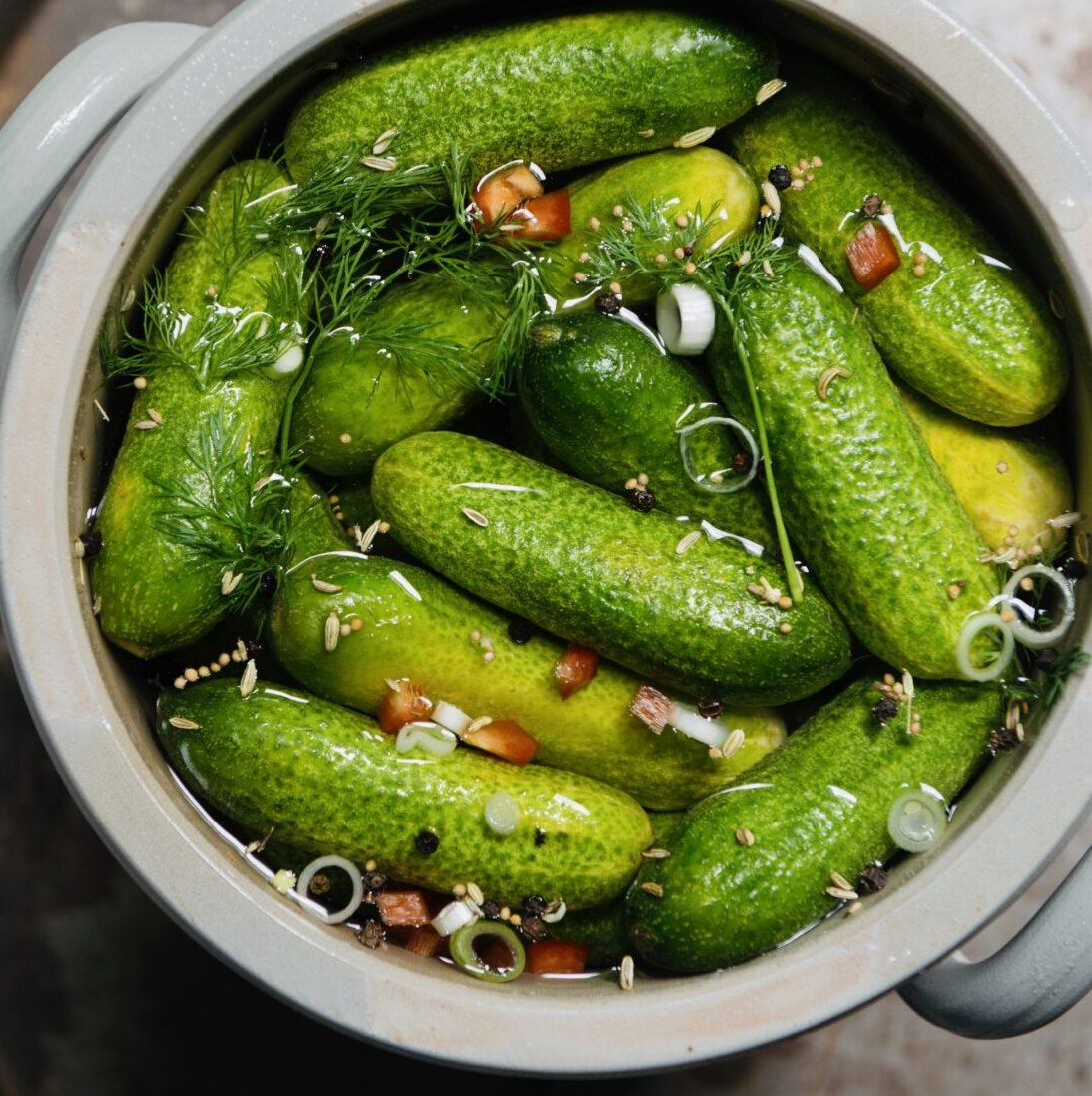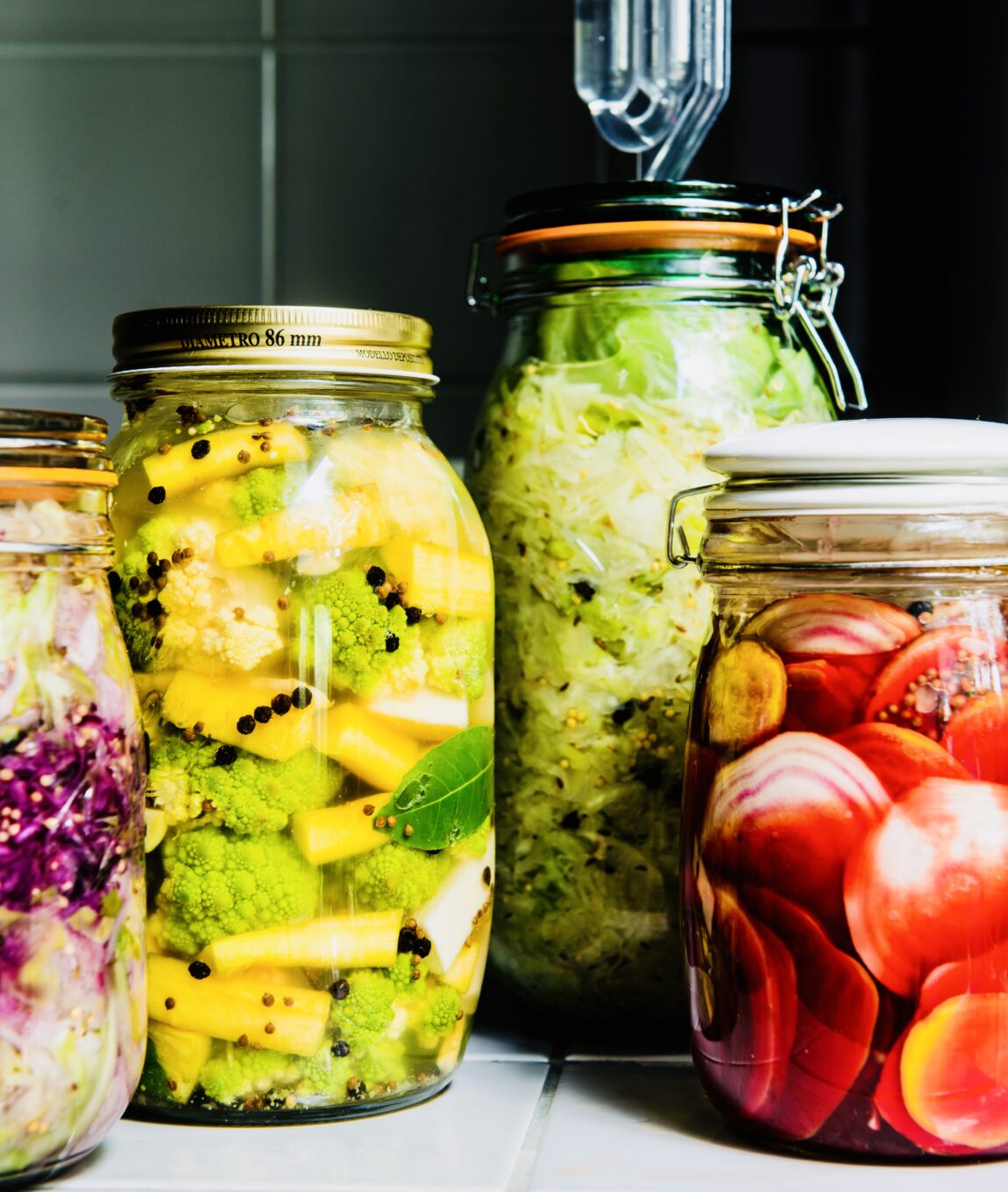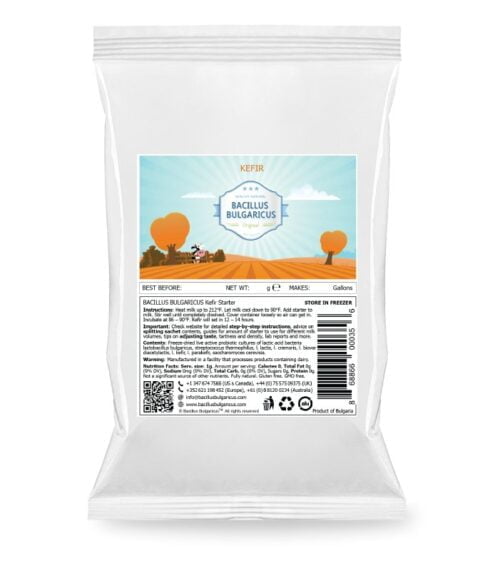Is kefir healthy? Separating fact from fiction
Category: fermentation,Learn
You’ve heard about kefir of course. This tangy, fermented milk drink has been around for thousands of years, but it’s recently been making waves in the health food world. But is kefir really as healthy as some claim? Let’s dive in and separate the facts from fiction.

What exactly is kefir?
Kefir is like a cross-over between yogurt and buttermilk, with a slight fizz. It’s a fermented milk drink that can range from creamy and mild to tangy and sour, depending on how long it’s fermented.
Milk kefir is generally a bit thinner than yogurt and has a sharper, sometimes even slightly cheesy and slightly alcoholic taste.
What’s in kefir?
Think of milk kefir grains as tiny neighborhoods where different microbes live and work together. These white cauliflower-like grains host quite a party: these can be 30 (or some studies show even up to 70!) different types of beneficial bacteria and yeasts.
The main players are:
- Lactobacillus species (like L. kefiranofaciens and L. kefiri), which turn milk sugar (lactose) into lactic acid. This gives kefir its tangy taste and helps thicken the milk.
- Streptococcus and Lactococcus bacteria, which contribute to both flavor development and that characteristic mild ‘fizz.’
- Several species of yeasts (like Kluyveromyces marxianus and Saccharomyces cerevisiae) that produce tiny amounts of alcohol and carbon dioxide, creating that slightly yeasty aroma.
What makes kefir unique compared to yogurt is this diverse community working together. Let’s face it: yoghurt contains 2 bacteria, and kefir trumps that many tenfolds.
Milk kefir vs water kefir
But don’t confuse milk kefir with water kefir! While both are fermented drinks made with “grains,” water kefir is a sugar-based soda, while milk kefir is dairy-based. They share a name, but that is where the similarity ends. Looking for waterkefir? Check out our water kefir grains here.
The secret behind kefir’s magic: the grains
The real stars of the show are the kefir grains. No, they’re not actual grains – they look more like tiny, gelatinous cauliflower florets. These grains contain a complex mix of bacteria and yeasts that work together to transform milk into kefir.
The main players are Lactobacillus bacteria (especially L. kefiri), which give kefir its sour taste, various yeasts that provide a mild carbonation and a hint of alcohol and kefiran, a special substance that gives kefir its creamy texture.

Is Kefir healthy? Separating the facts from fiction
With kefir’s rising popularity, there are plenty of health claims floating around. But which ones actually hold up under scientific scrutiny? Let’s break it down:
7 Proven benefits of drinking milk kefir:
Want to check out the actual scientific papers that this blog is based on? Check them out below!
Probable benefits (yet, more research needed)
Unproven claims about the health benefits of drinking kefir
Unfortunately, there are a lot of claims about the health benefits that can be found online or in books, that have not been substantiated by evidence. Let’s no partake in the spreading of untruths:

Is milk kefir safe to drink?
Generally, yes! But there are a few things to keep in mind: If you’re allergic to milk, steer clear. You might experience some temporary digestive issues when you first start drinking kefir due to the high levels of beneficial microbes that your gut needs some adjusting to.
There’s a tiny amount of alcohol in kefir (0.5-2%), so be aware if you’re sensitive or avoiding alcohol.
If you’re on immunosuppressant medications, check with your doctor first. Some interactions may occur.
If you’re making kefir at home, make sure to keep everything clean to avoid any unwanted bacteria crashing the fermentation party. Use your nose and eyes!
A few signs that you’re kefir is not safe to drink
Like any other home fermented product, it is wise to keep an eye out for signs of spoilage or infection. Here are a few signs that your kefir is not ok.
Is supermarket kefir healthy?
What’s the difference between commercial and homemade kefir? Recent scientific research confirms what Dutch consumer investigations discovered in 2019: they’re fundamentally different products.
Traditional kefir made with kefir grains contains up to 70 different microorganisms in complex symbiotic relationships. Store-bought kefir uses only 7-9 defined starter cultures and often completely lacks characteristic yeast populations. While authentic kefir contains Lactobacillus kefiranofaciens (responsible for healthy kefiran polysaccharides), commercial products use standard dairy starters like Lactococcus lactis.
The biggest difference? Yeasts. Traditional kefir contains complex yeast communities including Kluyveromyces marxianus and Saccharomyces cerevisiae. Laboratory tests show most commercial kefir contains no yeasts at all—technically making them acidified milk products rather than true kefir.
The fermentation process differs drastically. Homemade kefir breaks down lactose much more effectively (9.2 g/L versus 42.2 g/L in commercial versions) due to lactose-hydrolyzing yeasts. Traditional fermentation produces 257 unique bioactive peptides, with 172 found exclusively in grain-based fermentation.
Commercial kefir is produced for standardization and shelf life. Pasteurization at 90-95°C destroys heat-sensitive enzymes and reduces bioactive compound formation.
So, Is store-bought kefir healthy?
Sure, commercial kefir offers health benefits as a fermented dairy product, but clinical research consistently shows better results for traditional kefir. A 2023 study found only traditional kefir significantly lowered LDL cholesterol and inflammatory markers, with superior gut microbiome modulation.
The conclusion: for maximum health benefits and authentic kefir experience, homemade with real kefir grains is the clear winner.
How much kefir should you drink?
Generally, kefir is safe to drink and low in calories. So, there is no clear limit to the amount you can have in a day. However, please be aware of the fact that it may contain trace amounts of alcohol that can influence your alertness. Also, if you feel any discomfort (such as bloating), please reduce your intake, at least temporary. Other than that: enjoy your kefir!
Conclusion
So, there are many reasons to drink kefir. Foremost it being very tasty! While milk kefir can certainly have potential benefits, it is important to never use it as a sole remedy for any ailments, and always consult your doctor.
Want to read more?
Want to check out the actual scientific papers that this blog is based on? Check them out here!
Want to learn more? Take our milk kefir course
Learn to make milk kefir in this online course with fermentation expert Meneer Wateetons. Milk kefir is a fresh, fizzy, easily digestible, and above all, delicious probiotic dairy drink. In this online workshop, you’ll learn exactly how milk kefir fermentation works, how to obtain and maintain the grains, and how to make delicious milk kefir for the rest of your life.

About Meneer Wateetons
About Meneer Wateetons
Meneer Wateetons is a renowned Dutch foodwriter, teacher, fermentation specialist, sausage maker and the owner of startercultures.eu. He has written 9 books on culinary topics such as fermentation, alcohol making, sausages and charcuterie making and deep frying. He has taught many hobbyists, chefs and food professionals about these topics. He loves all types of fermentatie, but milkkefir a little more!
Related Posts

How to make cheese (including a recipe)
How do you make cheese? In this blog post we will teach you the basics of cheese making, including a recipe for your first Gouda style cheese!

How to make your own real fermented pickles
Learn how to make your own crunchy fermented pickles. Easy recipe with tips, variations, and answers to common questions.

How to Ferment Vegetables: A Beginner’s Step-by-Step Guide
Learn the simple art of vegetable fermentation. This guide covers the science, the right salt ratio, and includes an easy sauerkraut recipe to start your first successful ferment today.


